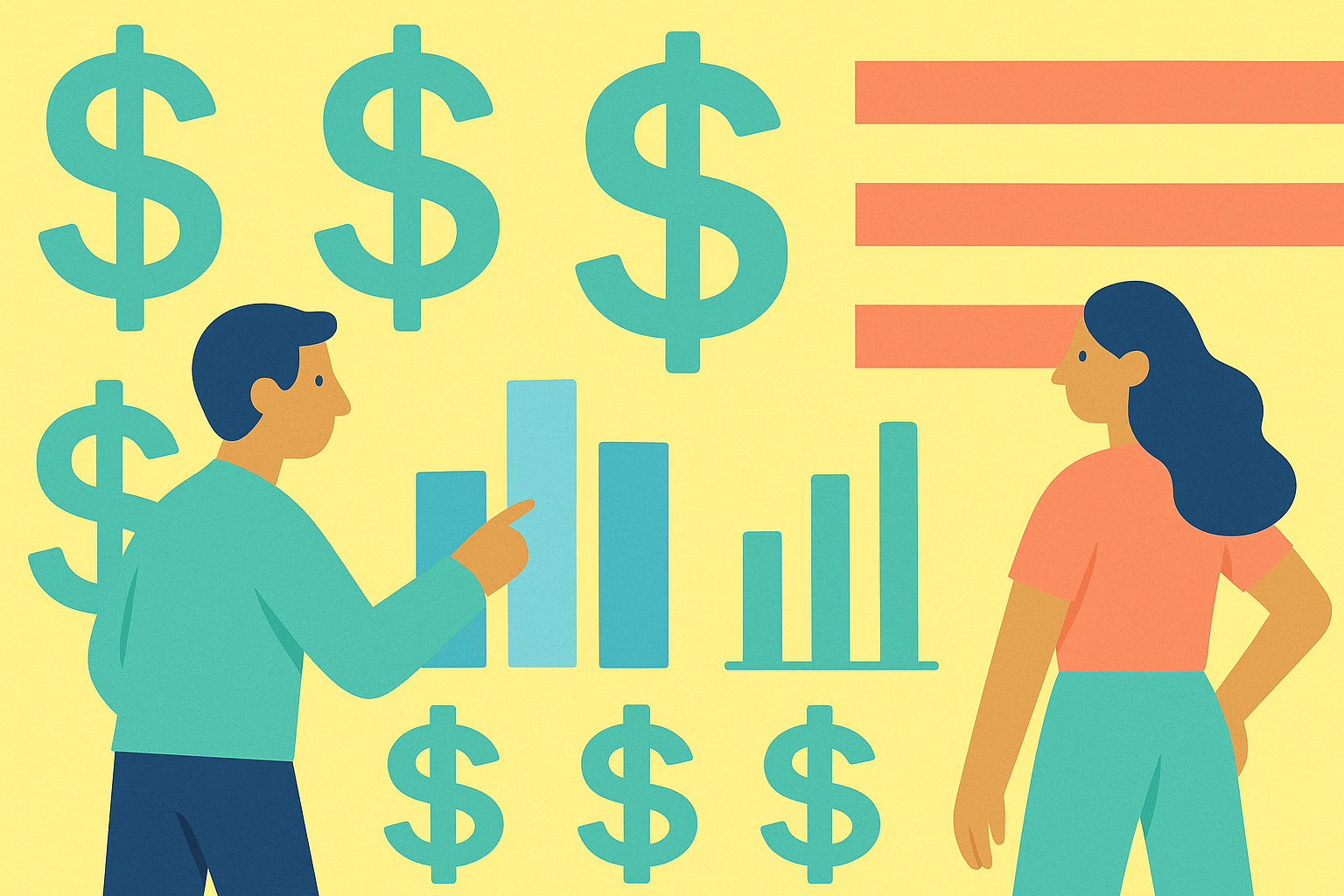US News
LAST UPDATE: June 13, 2025
Trump Tax Bill Would Help the Richest, Hurt the Poorest, CBO Says
The CBO found that the proposed “One Big Beautiful Bill Act” would benefit the wealthiest households by ~$12,000 annually, while poorest families would lose ~$1,600, and middle-income earners would see moderate gains. (apnews.com)
Insight
The bill represents a significant redistribution—favoring high-income households and imposing cuts to social programs like Medicaid and SNAP. This may fuel debate over economic equity and budget priorities.
Trump says unhappy about recent rise in oil prices
Oil prices surged over 4% to highs not seen since early April amid Middle East tensions. President Trump stated he’s unhappy about the uptick and expects prices to decline as inflation is under control.
Insight
Trump’s concern reflects sensitivity to domestic inflation and consumer costs. Rising oil prices could challenge his message on inflation control and affect approval from cost-sensitive voters.
Trump says he won’t fire Fed’s Powell but ‘may have to force something’ on rates
Trump criticized Fed Chair Powell as a “numbskull” for not cutting rates, though he claims he won’t fire him. However, he warned he “may have to force something” to push for rate cuts.
Insight
His pressure underscores the administration’s impatience with current interest rates, raising questions over Fed independence and potential executive influence on monetary policy.
Trump says he may soon hike auto tariffs to get more US production
Trump warned he could raise auto tariffs above the current 25%, aiming to incentivize automakers to build more plants in the U.S. He cited recent investments from GM and Hyundai as examples.
Insight
Raising auto tariffs could boost domestic manufacturing but also raise costs for consumers and strain trade relations—especially with Canada, Mexico, and South Korea. It reflects a broader protectionist trade trend.
Trump says he would love to avoid Iran conflict
Trump said that while an Israeli strike on Iran “could very well happen,” he emphasizes a preference to “avoid conflict” and pushes Iran to offer more concessions in talks.
Insight
Government rhetoric reflects delicate diplomacy aimed at deterring Iran through signaling, reaffirming U.S. support for peaceful resolution while acknowledging military options remain on the table.
Bessent Sees Deficit Falling Over 10 Years After Tax-Cut Bill
Treasury Secretary Scott Bessent projected that the proposed Republican tax-cut legislation—dubbed “One Big Beautiful Bill”—will reduce the federal budget deficit over the next decade, according to his testimony before the Senate Finance Committee. (news.bloombergtax.com)
Insight
This optimistic fiscal outlook hinges on strong economic growth assumptions. If growth underperforms, the deficit could widen, risking higher interest costs or triggering future tax/spending debates.
Bessent Declines to Outline Next Steps for China Tariffs
On June 12, Treasury Secretary Scott Bessent declined to provide specifics about when or how the U.S. might modify tariffs on Chinese goods. The 90‑day tariff pause from May ends on August 12, after which tariffs up to 145% could be reinstated. Talks in London reaffirmed the pause, but Bessent said only, “We’ll see,” on whether that date still holds. (wsj.com)
Insight
Bessent’s ambiguity suggests Washington is keeping its options open, using the looming deadline as leverage in negotiations. This uncertain stance maximizes U.S. bargaining power while avoiding premature commitments.
US weekly jobless claims steady at higher levels
Weekly initial unemployment claims held at 248,000 for the week ending June 7—above economists’ estimates, signaling a gradual cooling in the labor market. Continuing claims rose to nearly 1.96 million.
Insight
The elevated claims reflect seasonal shifts and sluggish hiring. With tighter immigration rules and tariff uncertainty, the labor market may lose steam, warranting a close watch on upcoming jobs data.
US producer inflation ticks up in May after tariff rollout
The Producer Price Index rose by 0.1% month-over-month (and 2.6% year-over-year) in May, reversing April’s 0.2% drop. The increase was fueled by services and goods sectors.
Insight
Tariffs are beginning to show in factory gate prices, though core inflation remains contained. The Fed is likely to proceed cautiously on rate decisions as these trade impacts evolve.


